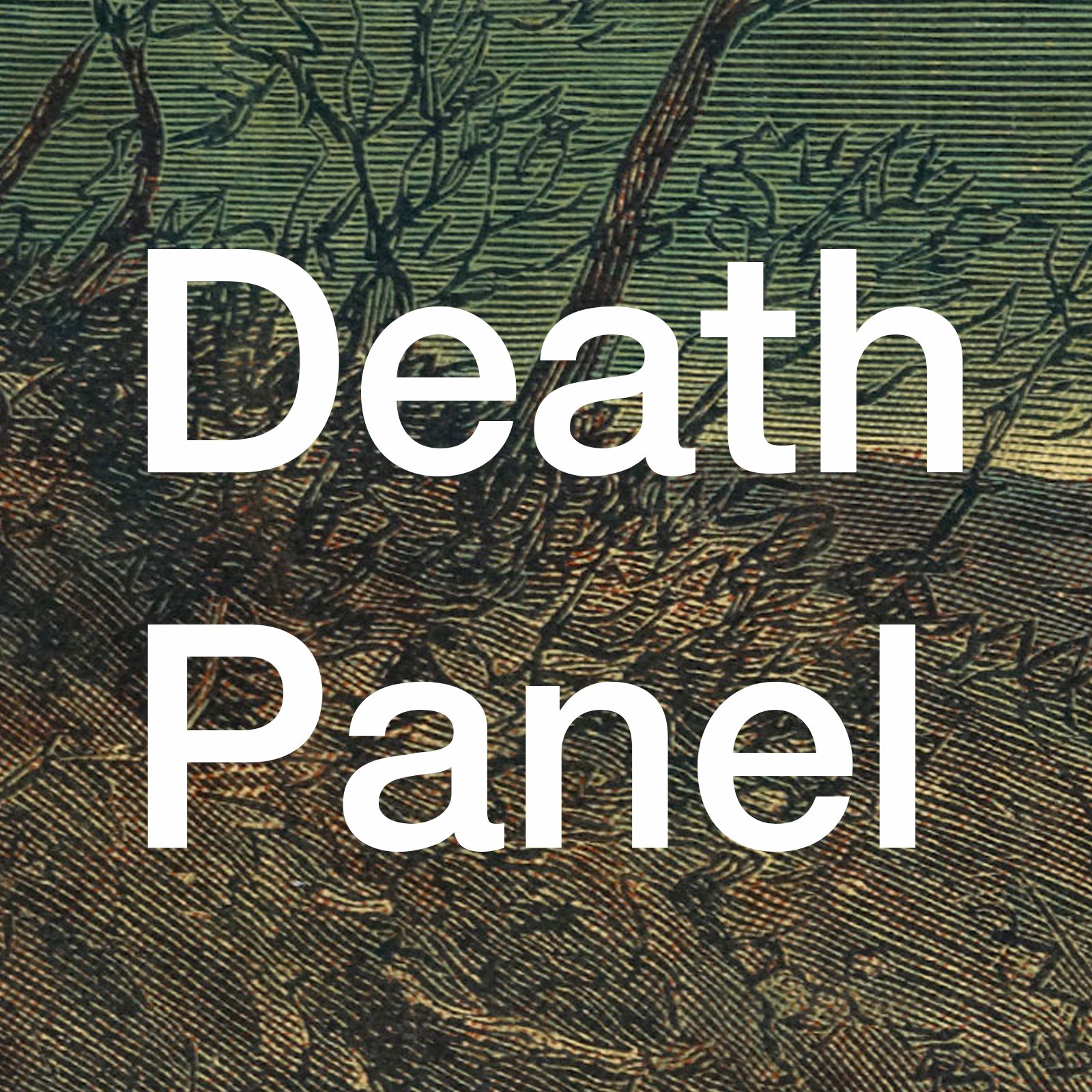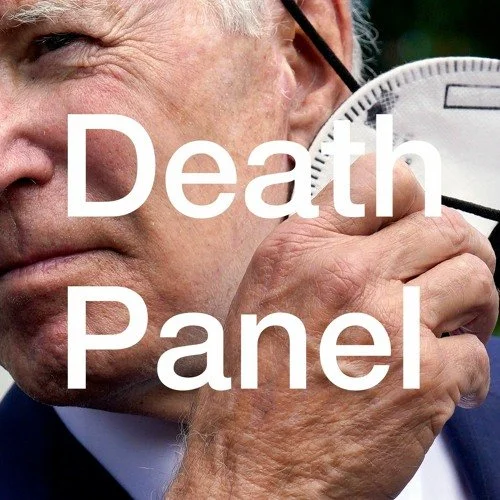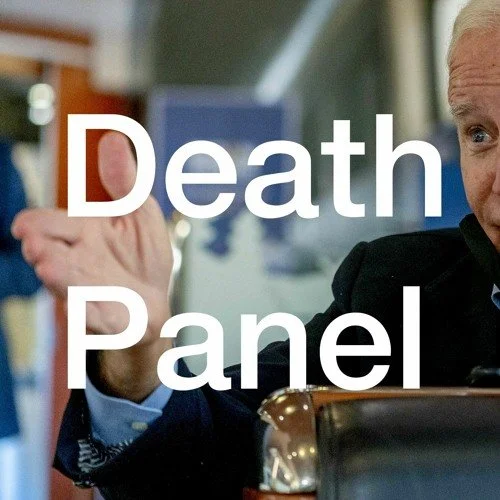Politics, culture, and public policy from the left. Medicare for All now. Solidarity forever. Stay alive another week.
A twice weekly podcast about political economy and “health.” Hosted by Beatrice Adler-Bolton, Artie Vierkant, Phil Rocco, Jules Gill-Peterson, and Tracy Rosenthal. The Death Panel is independent, ad-free, and fully listener-supported. Support the Death Panel on Patreon to get access to the second weekly bonus episode, out every Monday in the patron feed!
Books by the Death Panel Podcast Co-Hosts:
Artie and Beatrice: Health Communism (2022) Verso Books.
In this fiery, theoretical tour-de-force, Beatrice Adler-Bolton and Artie Vierkant offer an overview of life and death under capitalism and argue for a new global left politics aimed at severing the ties between capital and one of its primary tools: health.
Written by co-hosts of the hit Death Panel podcast and longtime disability justice and healthcare activists Adler-Bolton and Vierkant, Health Communism first examines how capital has instrumentalized health, disability, madness, and illness to create a class seen as “surplus,” regarded as a fiscal and social burden. Demarcating the healthy from the surplus, the worker from the “unfit” to work, the authors argue, serves not only to undermine solidarity but to mark whole populations for extraction by the industries that have emerged to manage and contain this “surplus” population. Health Communism then looks to the grave threat capital poses to global public health, and at the rare movements around the world that have successfully challenged the extractive economy of health.
Jules: A Short History of Trans Misogyny (2024) Verso Books.
There is no shortage of voices demanding everyone pay attention to the violence trans women suffer. But one frighteningly basic question seems never to be answered: why does it happen? If men are not inherently evil and trans women do not intrinsically invite reprisal—which would make violence unstoppable—then the psychology of that violence had to arise at a certain place and time. The trans panic had to be invented.
Award-winning historian Jules Gill-Peterson takes us from the bustling port cities of New York and New Orleans to the streets of London and Paris in search of the emergence of modern trans misogyny. She connects the colonial and military districts of the British Raj, the Philippines, and Hawai’i to the lively travesti communities of Latin America, where state violence has stamped a trans label on vastly different ways of life. Weaving together the stories of historical figures in a richly detailed narrative, the book shows how trans femininity emerged under colonial governments, the sex work industry, the policing of urban public spaces, and the area between the formal and informal economy.
A Short History of Trans Misogyny is the first book to explain why trans women are burdened by such a weight of injustice and hatred.
Phil: co-editor of American Political Development and the Trump Presidency (2020) University of Pennsylvania Press.
In virtually all respects, the Trump presidency has disrupted patterns of presidential governance. However, does Trump signify a disruption, not merely in political style but in regime type in the United States? Assessing Trump's potential impact on democratic institutions requires an analysis of how these institutions—including especially the executive branch—have developed over time as well as an examination of the intersecting evolution of political parties, racial ideologies, and governing mechanisms. To explore how time and temporality have shaped the Trump presidency, editors Zachary Callen and Philip Rocco have brought together scholars in the research tradition of American political development (APD), which explicitly aims to consider how interactions between a range of institutions result in the shifting of power and authority in American politics, with careful attention paid to complex processes unfolding over time. By focusing on the factors that contribute to both continuity and change in American politics, APD is ideally situated to take a long view and help make sense of the Trump presidency.
American Political Development and the Trump Presidency features contributions by leading political scientists grappling with the reasons why Donald Trump was elected and the meaning of his presidency for the future of American politics. Taking a historical and comparative approach—instead of viewing Trump's election as a singular moment in American politics—the essays here consider how Trump's election coincides with larger changes in democratic ideals, institutional structures, long-standing biases, and demographic trends. The Trump presidency, as this volume demonstrates, emerged from a gradual unsettling of ideational and institutional lineages. In turn, these essays consider how Trump's disruptive style of governance may further unsettle the formal and informal rules of American political life.
Contributors: William D. Adler, Gwendoline Alphonso, Julia R. Azari, Zachary Callen, Megan Ming Francis, Daniel J. Galvin, Travis M. Johnston, Andrew S. Kelly, Robert C. Lieberman, Paul Nolette, Philip Rocco, Adam Sheingate, Chloe Thurston.
Jules: Histories of the Transgender Child (2018) University of Minnesota Press.
A groundbreaking twentieth-century history of transgender children
With transgender rights front and center in American politics, media, and culture, the pervasive myth still exists that today’s transgender children are a brand new generation—pioneers in a field of new obstacles and hurdles. Histories of the Transgender Child shatters this myth, uncovering a previously unknown twentieth-century history when transgender children not only existed but preexisted the term transgender and its predecessors, playing a central role in the medicalization of trans people, and all sex and gender.
Beginning with the early 1900s when children with “ambiguous” sex first sought medical attention, to the 1930s when transgender people began to seek out doctors involved in altering children’s sex, to the invention of the category gender, and finally the 1960s and ’70s when, as the field institutionalized, transgender children began to take hormones, change their names, and even access gender confirmation, Julian Gill-Peterson reconstructs the medicalization and racialization of children’s bodies. Throughout, they foreground the racial history of medicine that excludes black and trans of color children through the concept of gender’s plasticity, placing race at the center of their analysis and at the center of transgender studies.
Until now, little has been known about early transgender history and life and its relevance to children. Using a wealth of archival research from hospitals and clinics, including incredible personal letters from children to doctors, as well as scientific and medical literature, this book reaches back to the first half of the twentieth century—a time when the category transgender was not available but surely existed, in the lives of children and parents.
Phil: co-author of Obamacare Wars: Federalism, State Politics, and the Affordable Care Act (2026) University Press of Kansas.
Not five minutes after the Affordable Care Act (ACA) was signed into law, in March 2010, Virginia’s attorney general was suing to stop it. And yet, the ACA rolled out, in infamously bumpy fashion, and rolled on, fought and defended at every turn—despite President Obama’s claim, in 2014, that its proponents and opponents could finally “stop fighting old political battles that keep us gridlocked.” But not only would the battles not stop, as Obamacare Wars makes acutely clear, they spread from Washington, DC, to a variety of new arenas. The first thorough account of the implementation of the ACA, this book reveals the fissures the act exposed in the American federal system.
Obamacare Wars shows how the law’s intergovernmental structure, which entails the participation of both the federal government and the states, has deeply shaped the politics of implementation. Focusing on the creation of insurance exchanges, the expansion of Medicaid, and execution of regulatory reforms, Daniel Béland, Philip Rocco, and Alex Waddan examine how opponents of the ACA fought back against its implementation. They also explain why opponents of the law were successful in some efforts and not in others—and not necessarily in a seemingly predictable red vs. blue pattern. Their work identifies the role of policy legacies, institutional fragmentation, and public sentiments in each instance as states grappled with new institutions, as in the case of the exchanges, or existing structures, in Medicaid and regulatory reform.
Looking broadly at national trends and specifically at the experience of individual states, Obamacare Wars brings much-needed clarity to highly controversial but little-understood aspects of the Affordable Care Act’s odyssey, with implications for how we understand the future trajectory of health reform, as well as the multiple forms of federalism in American politics.




















































































































































